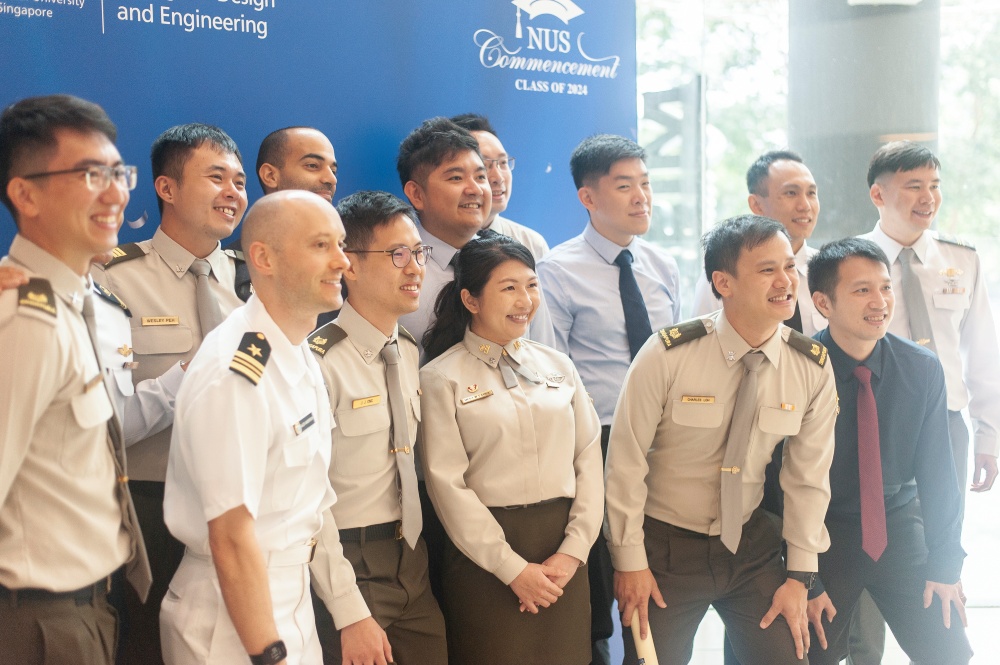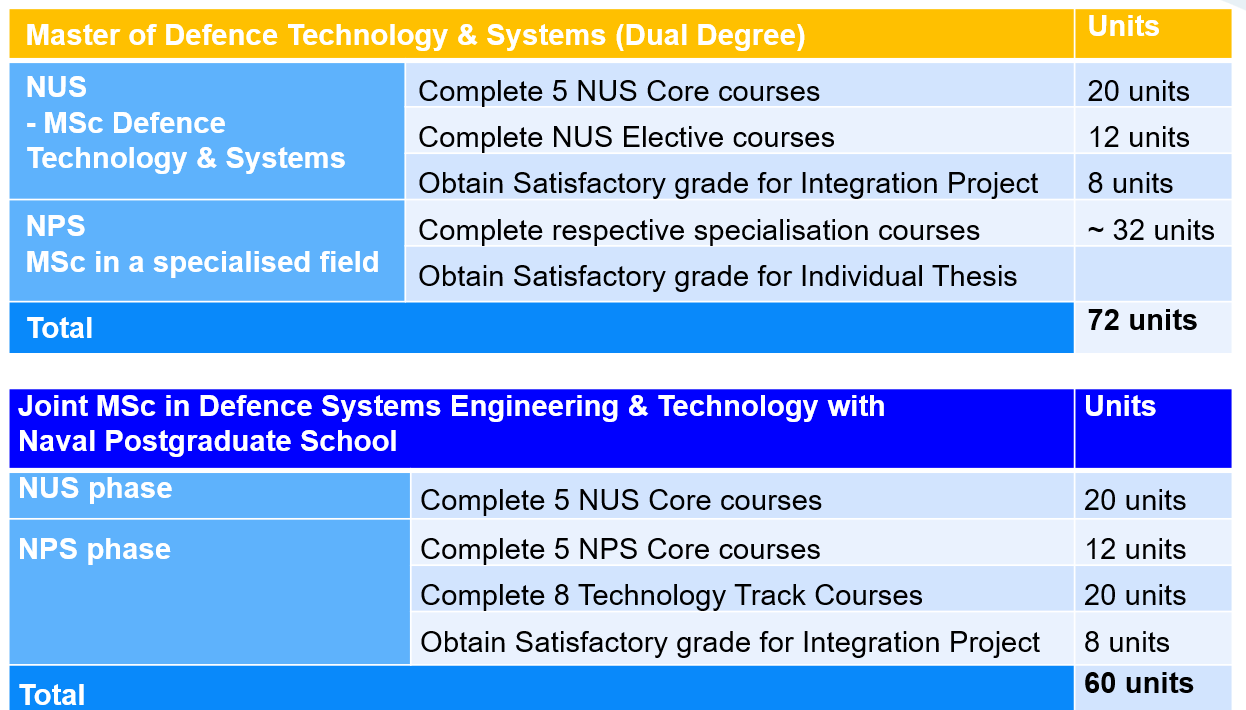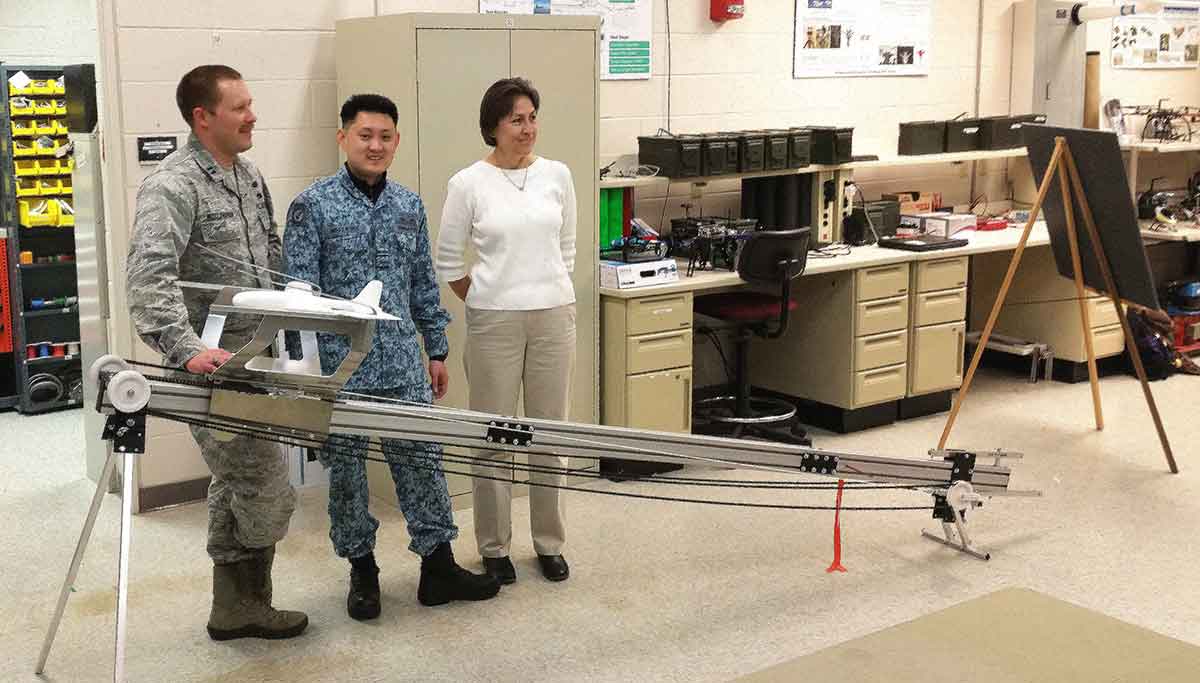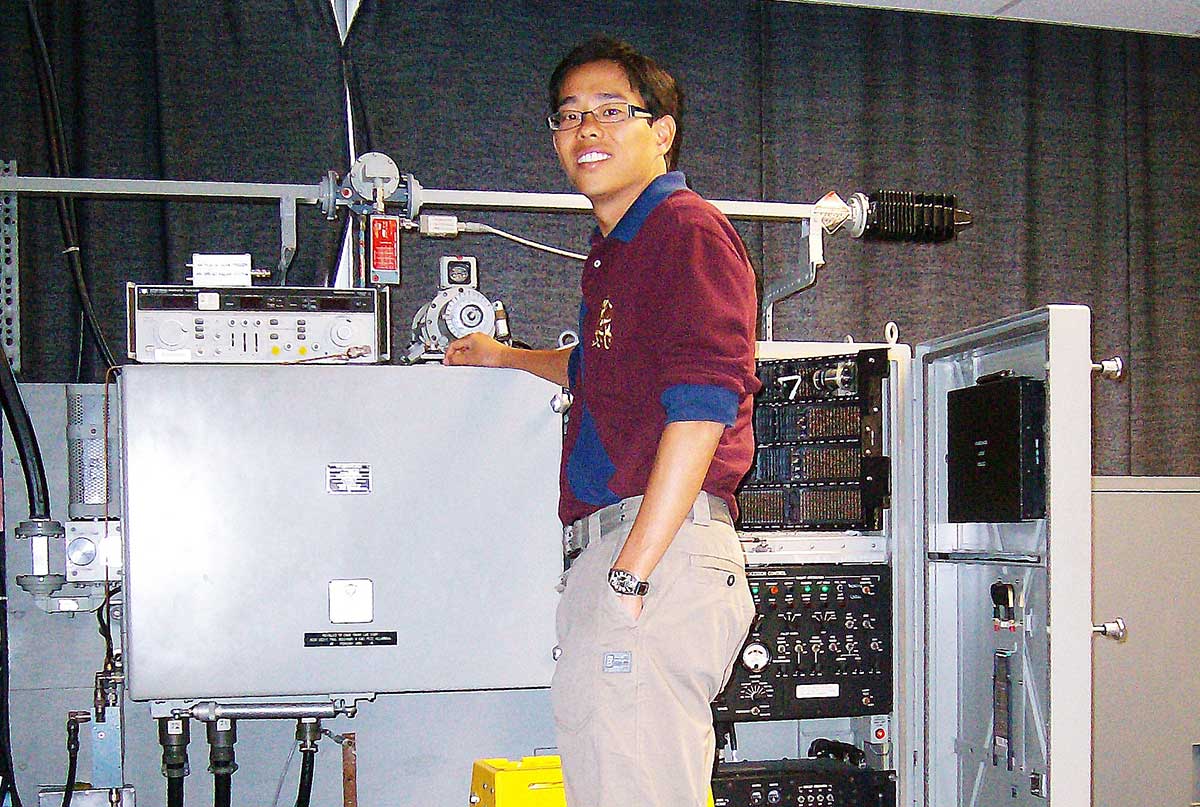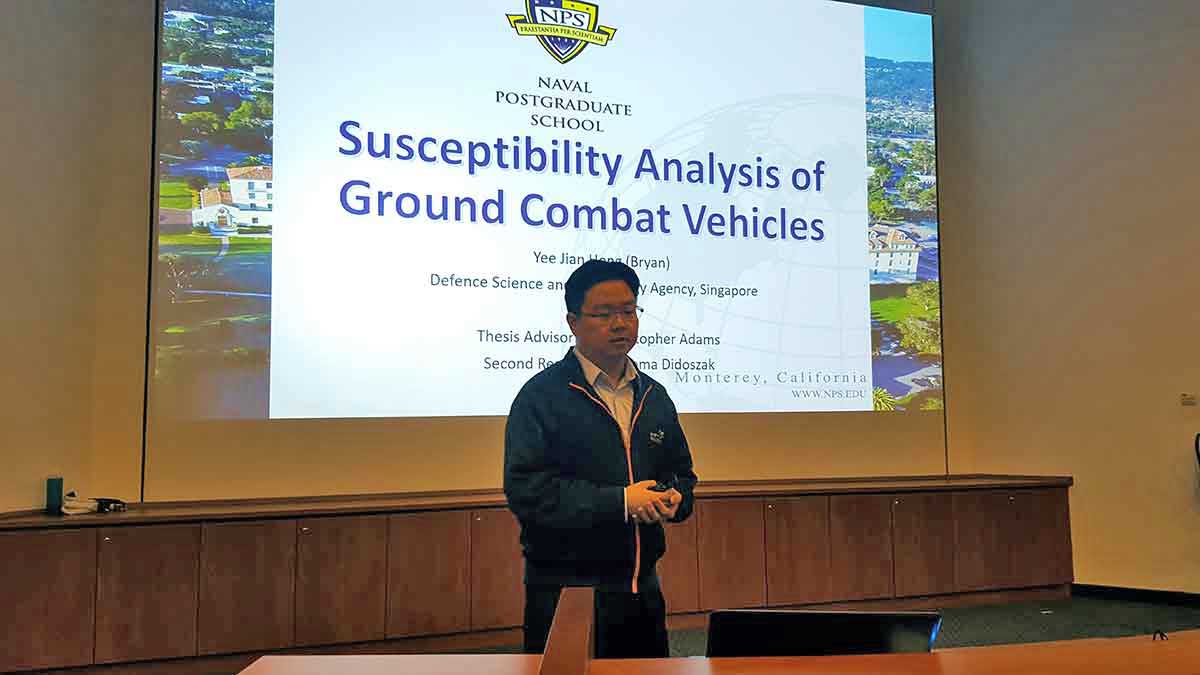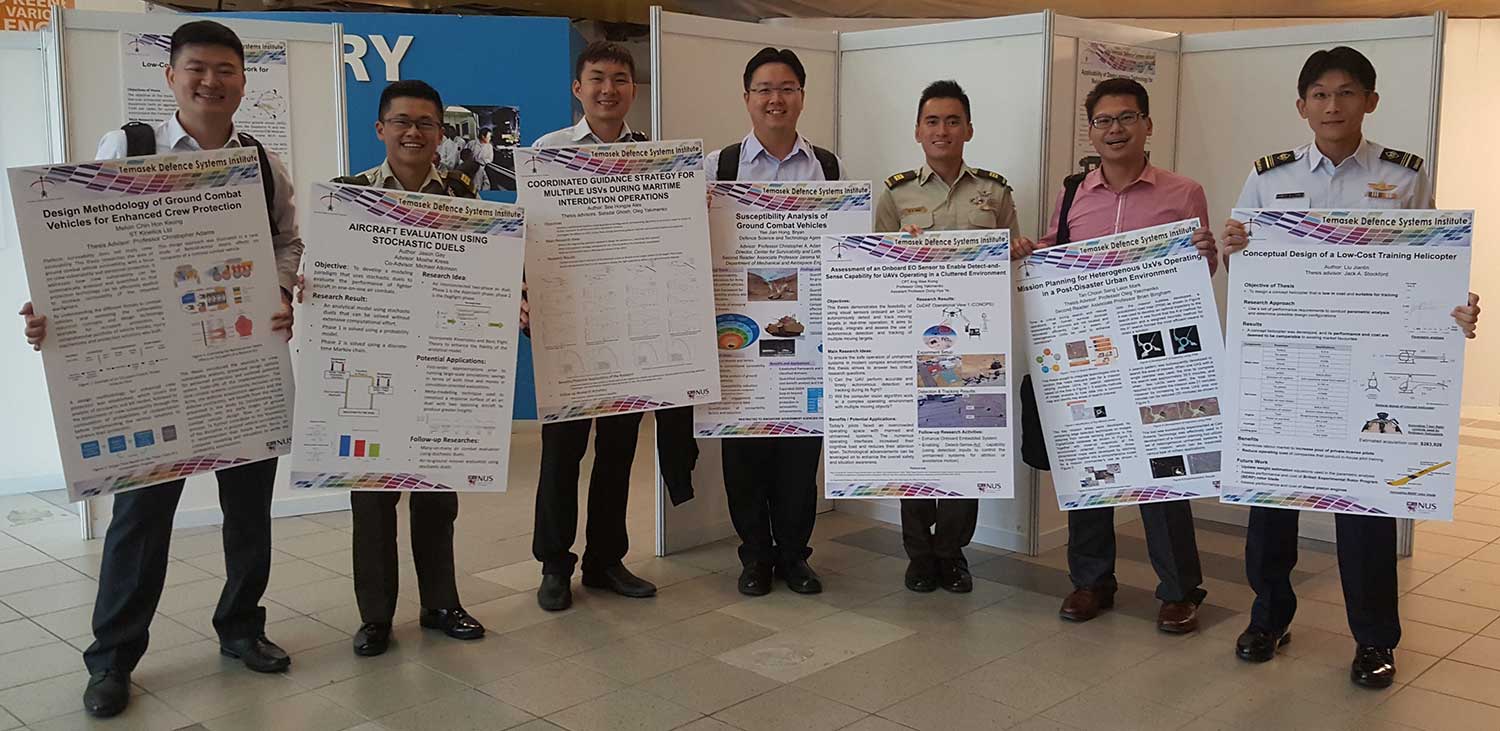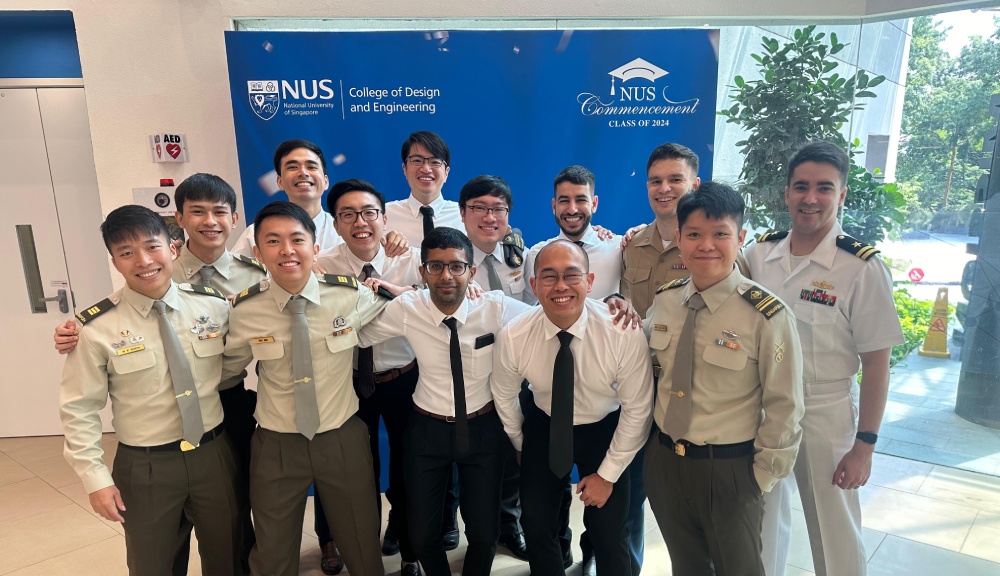
Master of Defence Technology and Systems
The Master of Defence Technology and Systems (MDTS) is a flagship dual-masters of science programme of TDSI. This 18-month programme provides a postgraduate education avenue to attain dual-master’s degree from the prestigious National University of Singapore and from one of TDSI’s overseas partner universities, namely Naval Postgraduate School, Cranfield University, and Air Force Institute of Technology. The flagship dual-masters MDTS programme has graduated over 500 defence professionals from both the local and international defence communities.

